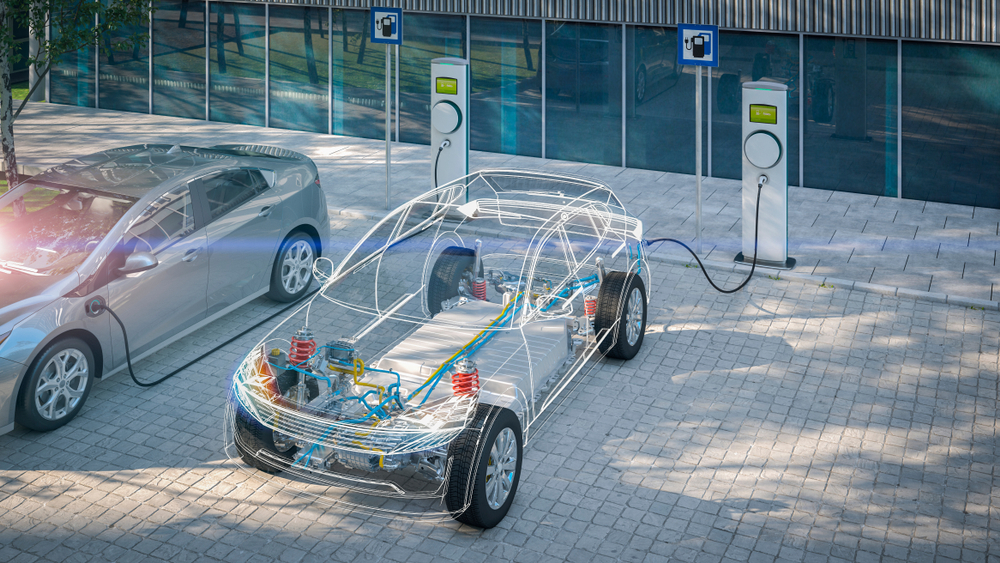The Tax Benefits for Your Business When Going Electric

You know about the environmental perks of electric vehicles, but did you know about the tax benefits switching to electric can offer? If your business has a fleet or company cars, you might want to consider how going electric can benefit you from a revenue perspective.
Operating an electric car can be up to 61% cheaper than a petrol-powered vehicle even if they may be a bigger business expense to buy or lease upfront.
In this article, we’ll go through some of the major tax benefits of changing to an electric vehicle and detail why your business should consider going electric.
Vehicle tax savings
With business and living costs shooting up, it’s sensible to save money where we can. This includes how much we pay for company vehicles. The first-month tax payment for new vehicles will depend on the CO2 output of the vehicle. From the second month onwards, the current annual flat vehicle tax rate for petrol cars worth under £40,000 is £165, with a £10 discount for hybrid cars.
However, when you’re buying or leasing[NB1] [NB2] a fully electric car, there’s zero vehicle tax. The government scrapped the additional charge for more expensive electrical vehicles in 2020 to incentivise drivers and businesses to switch to electric.
You’ll still have to fill out the tax forms for the vehicle you buy through the government website, but knowing that you won’t get charged for it will feel like a weight off your shoulders.
Congestion charge zone savings
In 2003, London introduced a measure to reduce emissions and traffic with the congestion charge zones. Vehicles driving in these zones between 9am and 6pm on weekdays, or midday to 6pm on weekends and bank holidays, are charged a flat fee of £15.
Electric cars are the only vehicles exempt from these charges. Though you have to pay an initial fee of £10 when registering your car for the exemptions on the Transport for London website, once that’s paid, you’re free to travel as you please within London’s boroughs at no extra cost.
Not only does this mean lower costs when driving in the country’s capital, but it also means less stress too. You and your employees won’t have to adjust your journeys to account for these congestion zones. If you or they live in the area, it makes commuting so much easier. Plus, there are plenty of vehicles in the likes of used Mazda cx5 in the surrounding areas where you can pick up an electric car.
The government is also instituting a number of clean air zones around the country. These are pollution-reducing areas in city centres where vehicles travelling in the zone will be charged. The cost is based on how much pollution they’re deemed to be creating and the size of the vehicle. Electric cars and other vehicles are all exempt from these charges.
Capital allowances
If your business has and uses cars frequently, whether that’s for trips to meetings or site viewings, you may already claim capital allowances. This is where you deduct part of the cars’ value from your profits before you pay tax.
As of April 2020, your business can now claim 100% of the cost of an electric vehicle, and there aren’t any restrictions on vehicle value. What’s more, as of April 2021, zero-emission cars and vans can qualify as first year allowances (FYA) as long as they’re new and unused.
While a company cannot claim back VAT on a company car even if it’s electric, you can benefit from other incentives. The Office for Low Emission Vehicles (OLEV) offers a plug-in-car grant, which it pays directly to carmakers for a discount on approved vehicles.
Overall, the tax benefits of switching from traditional fossil fuel vehicles to electrics car are enticing. Exemptions from vehicle tax and being able to travel around London without additional charges for driving in specific zones brings an additional level of freedom to businesses that own electric cars. On top of this, you can claim back up to the full value of the vehicle with capital allowance. So, while buying an electrical car primarily helps the environment, business owners will benefit from significant financial savings too.
Sources
https://youmatter.world/en/are-electric-cars-eco-friendly-and-zero-emission-vehicles-26440/[NB3]
https://www.drivingelectric.com/your-questions-answered/100/electric-cars-and-road-tax
https://www.gov.uk/vehicle-tax-rate-tables
https://www.rac.co.uk/drive/electric-cars/running/do-electric-cars-pay-the-congestion-charge
https://tfl.gov.uk/modes/driving/cc-cvd-before-you-begin?sourceRoutingKey=discounts-and-exemptions
https://www.gov.uk/government/publications/electric-vehicle-homecharge-scheme-eligible-vehicles
https://www.gov.uk/guidance/driving-in-a-clean-air-zone
https://www.gov.uk/capital-allowances/business-cars
https://www.gov.uk/plug-in-vehicle-grants











Responses